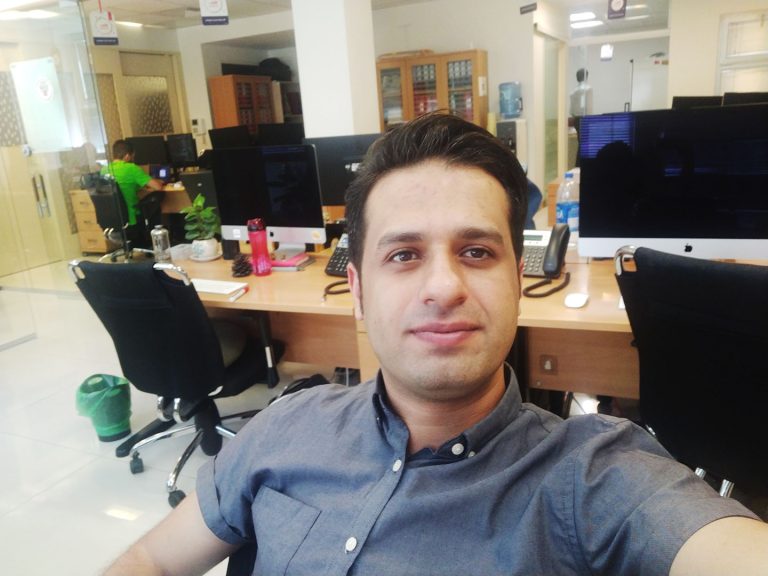Open source careers: How Mehdi Hamidi became a DevOps Specialist

In 2019, Linux Professional Institute (LPI) celebrated 20 years of offering training and tests. The LPI20 Birthday Contest gave us the opportunity to hear from you some amazing stories about your careers in open source and how the LPI certification program helped you. Over the next weeks, we’ll share some of these stories.
We are gratified to start with the story of Mehdi, a SysAdmin and DevOps Engineer from Iran.
Pentium 133, DevOps, and everything in between
I’m Mehdi Hamidi, a DevOps Specialist with 5 years of work experience in System Administration and DevOps. I believe my current position grew from of a change in direction I took early in my education. And I think I have been lucky in my life. So, let me tell you my “techie life” story…
In the beginning
When I was 13, my aunt had a Pentium 133 computer and I was curious about how a computer works. I almost immediately started writing code, before having my own computer. I had read a QBasic book and I was writing the code on… paper. My first memorable achievement, which I’m still incredibly proud of, was a Qbasic Code to calculate prime numbers up to 1000.
It was six months before I could visit my aunt again.The code worked fine.
I am very happy to share my story about how LPI has changed my life and helped me in pursuing my goals.
Linux and Open Source: many kernels ago
The first Linux environment that I was involved with was RedHat Linux 7.2 in high school. I loved writing code in C and testing it on Linux. At that time I started learning the Linux commands.
At the university, courses required mostly Microsoft environments and C# language; however, I always kept an eye on Linux.
The path seemed clear: to get my Master of Science, send out CVs, start work. But halfway through my postgrad program, I found out that it wasn’t what I expected. I needed something more practical, something that I could do. I left the university. But I wasn’t quitting the computer field: I was looking for a way to get more involved in something that was not teached in universities, something related to my technical goals, by which I could become a prominent expert.
The Linux Community and me
I immediately started looking for a community of developers and SysAdmins in Iran. I started attending the Tehran LUG meeting and the other events such as the Ubuntu Release Parties.
Then I opened my Twitter account. Twitter had an undeniable impact on allowing me to connect with my technical friends as well as industry experts.
It seemed that It was for a big change. I quit my routine job and went for learning PHP, as I wanted my applications web-based. The problem is: I genuinely hated PHP! It seemed the end of the line. But I was wrong.
I hadn’t realized that having a good knowledge of Linux is a great key for aspiring to System Administrator positions. I heard of LPI for the first time at an Ubuntu Release Party. Meanwhile, a SysAdmin friend told me a small company was developing its private cloud. I wasn’t sure what it was about, but it was something Linux related, and that was enough. 😉
After two months studying Linux and virtualization, I started the job. Meanwhile, I bought a Raspberry Pi and built up a home server, just to keep me (more) busy. I implemented a WordPress blog with Apache on that Raspberry Pi with a single core CPU. Just imagine, what would happen with all of the LAMP stack on a single SD Card…
This was the beginning of my learning about web servers, logs, optimization. I implemented an NFS server for home file sharing. I started synching my Phone Contacts with CardDav Server on Raspberry Pi. Thank you, RaspberryPi, for making a junior SysAdmin of me!
The LPI Certification
And then LPI came into play. I wanted to give more consistency to my CV through a worldwide acknowledged certification. That’s why I attended an LPI exam.
I signed up for preparation classes for LPIC-1. The classes were dramatically important to help me navigate through the topics and objectives of the exam.
I started to read the reference books, which contain the majority of exam objectives, and took notes from the most important parts, which I referred to on the next iteration of studying. The most significant insight I got during the studying phase, when I was involved in many important details, was the many gaps in my knowledge. Study made me aware of my weaknesses and lack of knowledge, which I wouldn’t have found out otherwise. The details matter, because they distinguish between a beginner and experienced system administrator. LPIC-1 made me involved in the details, and that is the most significant effect it had on my techie life.
Although the exam was tougher than I expected, I passed and I became an LPIC-1 certified professional.
Me, a DevOps, today
My approach to my career involves continuous learning. I implemented Zabbix monitoring for the company I was working in. The need for agile development and integration made me go in Docker and Jenkins direction. Nginx. SaltStack. And then microservices and Kubernetes.
I applied for LPIC-2 preparation classes, two years ago, in order to apply for more professional work positions. I want to dare: again, and more. It’s time to prove myself going for LPIC-2!
Would you also like to share your open source story? Visit www.lpi.org/community/write to find out how.
